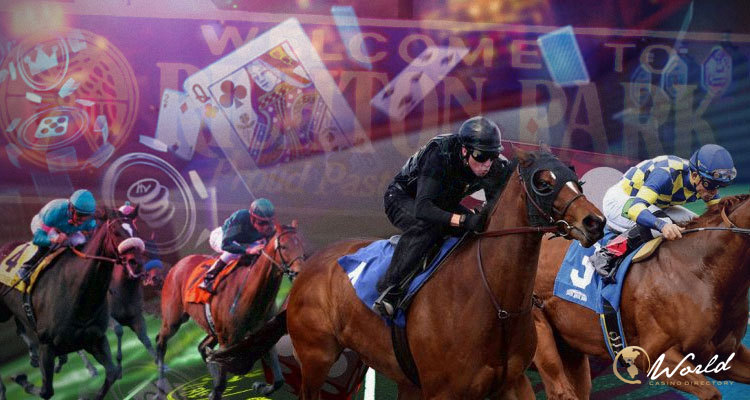The real-estate developer Greenway Entertainment Group announced Wednesday its intention to build a casino and horse race track in south suburban Richton Park. In line with the announcement, Illinois lawmakers have proposed eliminating Hawthorne Race Course’s power to veto any competing racino within 35 miles of its track in west suburban Stickney.
$300 Million Development:
Greenway’s plans were approved by village officials and then discussed at an Illinois Senate executive committee hearing Thursday. The developer needs a bill in the Senate to clear the veto negotiated by Hawthorne under the 2019 gambling law that allowed six new casinos, sports gambling, and horse racing tracks combined with casinos in the state and known as ”racinos.”
A group of investors led by Drew Daniels, the Lake Bluff real estate developer’s managing member, referred to Illinois Gaming Board to express their interest to develop a racino at Richton Park. Having contracted an 80-acre site, the group proceeded with design and engineering work for an around $300 million development. The Richton Park officials supported the idea but the investors complained that constant delays in Hawthorne expansion plans incurred a significant revenue loss and affected the racing industry.
Losing Revenue:
Chicago Tribune transfers the letter sent by Drew Daniels to the Gaming Board: “We urge the Illinois Gaming Board and the Illinois General Assembly to consider the loss of revenue and endless delays that the current Act permits, and promote an alternative that allows this critical and meaningful revenue to commence without further inexplicable impedance.” Richton Park Village Manager Regan Stockstell supported the racino development as ”a meaningful economic development opportunity that should be allowed to proceed.”
Roy Arnold, CEO of Endeavor Hotel Group, is one of the prospective investors in the horse racing facility. He said that the elimination of the Hawthorne veto is crucial to have these harness race tracks built. He added that lawmakers will have to end Hawthorne’s veto and cut its constant delays. “We are almost four years into this and they haven’t done anything,” Arnold said of Hawthorne.
Delayed Casino Launch:
With some mayors in the south suburbs raising concerns that the racino would impact plans for a casino resort in the area, racino proposals were made to save the racing industry with fresh revenue money. Hawthorne planned to build one before 2019 but the state authorities did not want to sell the land for the project due to some public concerns related to the company’s partner Heidner, which then lost its gaming license on other grounds.
Hawthorne announced the development of a $400 million racino at its existing track to be opened in 2021 but repeatedly postponed the launch due to ”COVID-related complications and high interest rates,” according to the company’s president Tim Carey, who said last week that these tracks will be opened next year. Carey continued that a prospective removal of Hawthorne’s ”protection” from the competing racino would be something ”that hurts,” and suggested that lawmakers reduce the revenue of horse owners instead.
A Question of Timing:
The source further reports that State Sen. Bill Cunningham, a Democrat from Chicago’s South Side, told Carey: “Horse racing is dying while we wait for a racino to be built at Hawthorne, so I think we have to be open to other options.”
Steve Brubaker, a lobbyist for the Illinois Harness Horsemen Association, agreed: “We have the same goals,” he said. “I think it’s a question of timing.” Likewise, former Gov. Jim Edgar, a horse owner, and racer said that the authorities should use the opportunity and get a south suburban racino going.
The proposed bill would refer to a deadline of June 29, 2023, before the veto would expire. Under the gambling expansion bill, only one of seven south suburban townships could be a possible location for a racino. These include Rich Township, where the Richton Park casino and horse tracks have been planned by the investors subject to the lawmakers’ removal of Hawthorne’s veto power.



